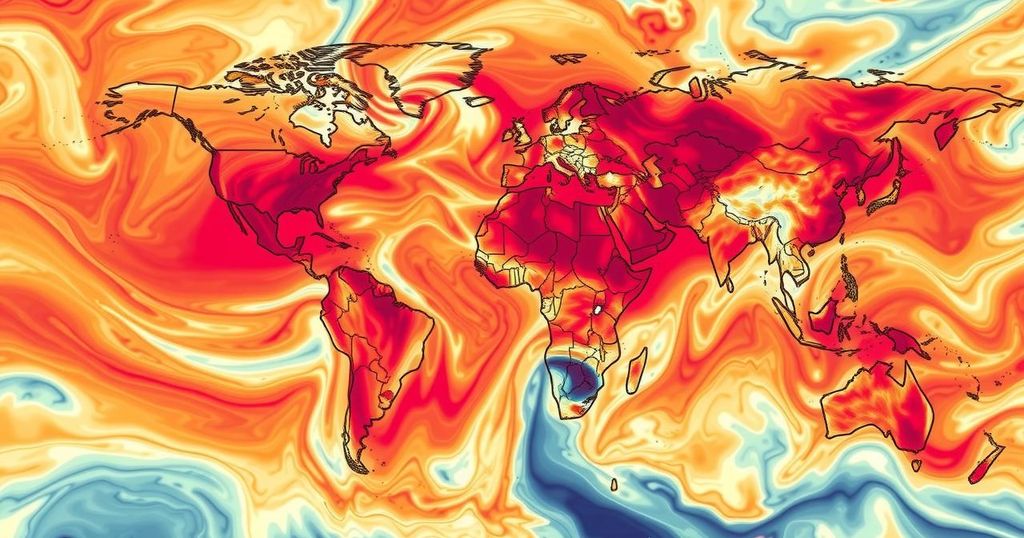Urgent Call to Action: Climate Change Contributes 41 Extra Days of Dangerous Heat in 2024

A recent study reveals that climate change has caused an average increase of 41 dangerous heat days in 2024, impacting health and ecosystems worldwide. It urges immediate action to transition away from fossil fuels to prevent future extreme weather events and recommends strategies to bolster resilience in developing nations.
New findings reveal that climate change has exacerbated heat conditions globally, adding an average of 41 additional days of dangerous heat in 2024. This alarming increase has detrimental effects on human health and ecosystems, as reported by a recent joint study from World Weather Attribution (WWA) and Climate Central. The report emphasizes the urgency for every nation to adapt to escalating climate risks to mitigate the loss of life and property in the coming years. The surge in temperature days is attributed to human-induced warming, necessitating a rapid shift from fossil fuels to combat future extreme weather phenomena, such as heat waves, droughts, wildfires, storms, and floods.
The research indicates that climate change intensified 26 out of 29 examined weather events, which resulted in the deaths of over 3,700 individuals and displaced millions globally. Notably, the report highlights that the influence of climate change on severe weather events surpassed that of El Nino, signaling a need for proactive measures. Friederike Otto, the lead of WWA and senior lecturer at Imperial College London, stated that the consequences of fossil fuel consumption have reached unprecedented levels, marking 2024 as a pivotal year. He urged a consolidated effort towards abandoning fossil fuels to secure a safer planet.
The report further forecasts that 2024 may become the hottest year on record, with the first half exhibiting historic high temperatures, thereby continuing a streak of extreme heat that has persisted since 2023. Experts caution that unless rapid actions are undertaken to transition from fossil fuels, the frequency of dangerous heat days will escalate annually, posing a significant threat to public health. Recommendations from the study include an accelerated transition from fossil fuels, enhanced early warning systems, and international financial support to boost the resilience of developing nations against climate impacts.
The discussion surrounding climate change has gained heightened urgency in light of recent research revealing its profound effects on global weather patterns. With an increasing number of extreme weather events being linked to human-caused climate change, experts assert the essentiality of immediate and effective measures to mitigate these impacts. This study builds upon the historical context of climate change, focusing on its direct correlation with rising temperatures and their consequential toll on human health, ecosystems, and global stability.
In summary, the report underscores the critical need for an immediate transition away from fossil fuels in order to manage the growing risks posed by climate change. The notable increase of 41 days of dangerous heat in 2024 serves as a clear warning sign, advocating for urgent action among nations to address both climate change and its associated extreme weather events. Without proactive strategies, the world will continue to face dire consequences affecting millions.
Original Source: www.aa.com.tr





